Relevant Books by Piero Mella
Prof. Piero Mella has authored more than 30 books and contributed to a large number of book chapters for various publishers (see publications). We present a selection of his most accessible and applicable works to the interested reader.
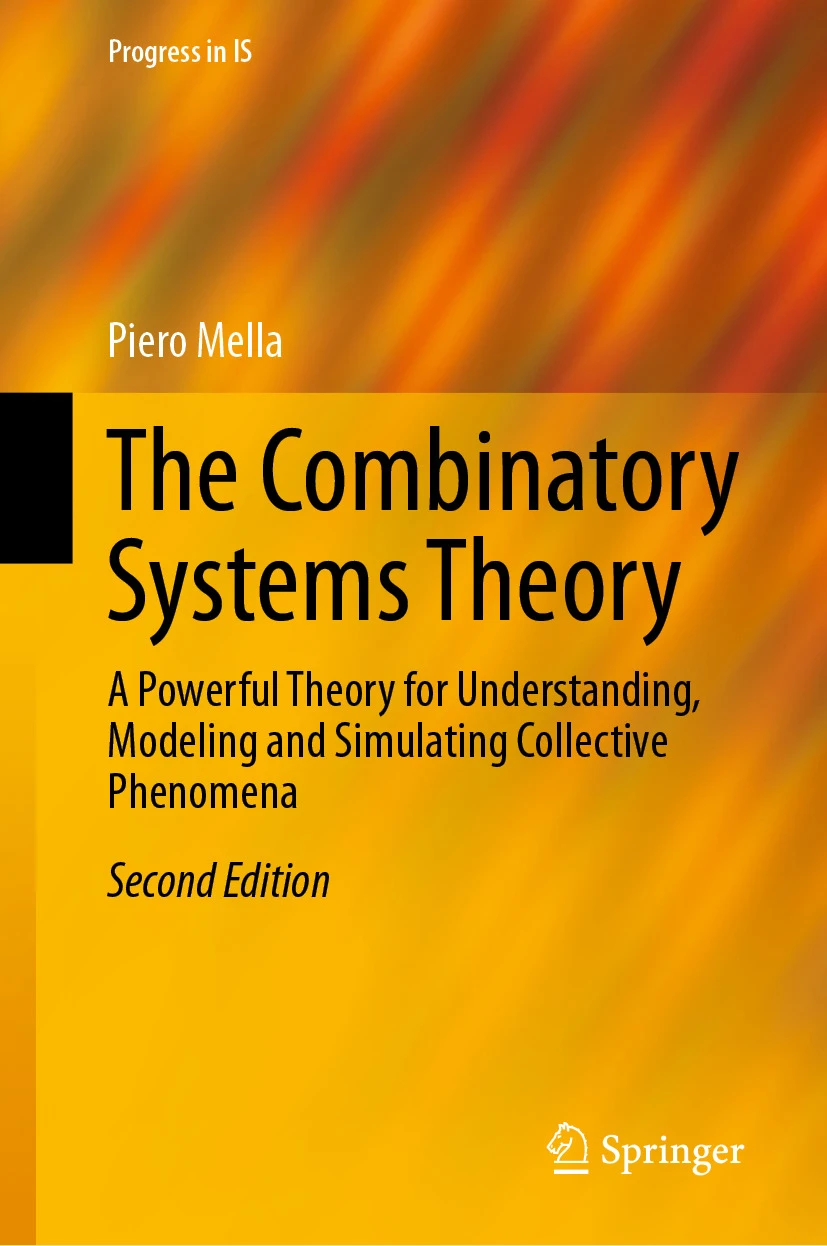
The Combinatory Systems Theory – Second Edition
Understanding, Modeling and Simulating Collective Phenomena
Springer
This book adopts the logic of Systems Thinking and Control Systems, presenting a simple but complete theory called the Theory of Combinatory Systems. This new theory describes, interprets, explains, and simulates collective phenomena and their observable effects. Such collective phenomena – many of which are “one way”, non-repeatable or reproducible – can all be described and understood using the model, as simple as it is general, of Combinatory Systems; that is, systems formed by collectivities, or populations of non-connected and unorganized individuals of some species, which appear to be directed by an invisible hand that guides the analogous actions of similar individuals in order to produce an emerging collective phenomenon.
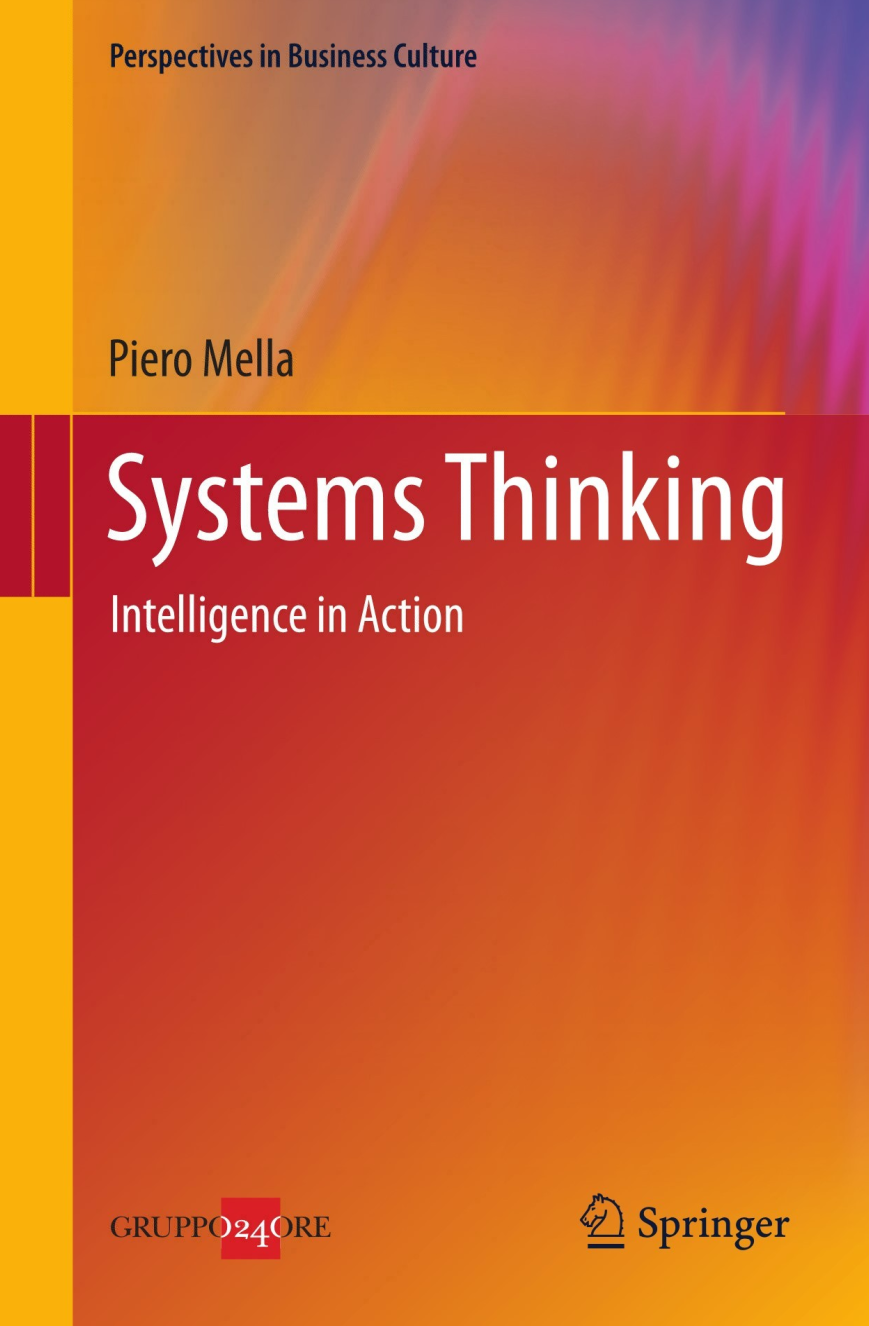
Systems Thinking
Intelligence in Action
Springer
The core belief underlying this book is that the most useful and effective models to strengthen our intelligence are system ones, developed following the logic of Systems Thinking. Such models can explore complexity, dynamics, and change, and it is the author’s view that intelligence depends on the ability to construct models of this nature. The book is designed to allow the reader not only to acquire simple information on Systems Thinking but above all to gradually learn the logic and techniques that make this way of thinking an instrument of the improvement of intelligence. In order to aid the learning and practice of the Systems Thinking discipline, the author has abandoned a rigid formal language for a more discursive style. He writes in the first person, with an ample number of citations and critical analyses, and without ever giving in to the temptation to use formal mathematics.
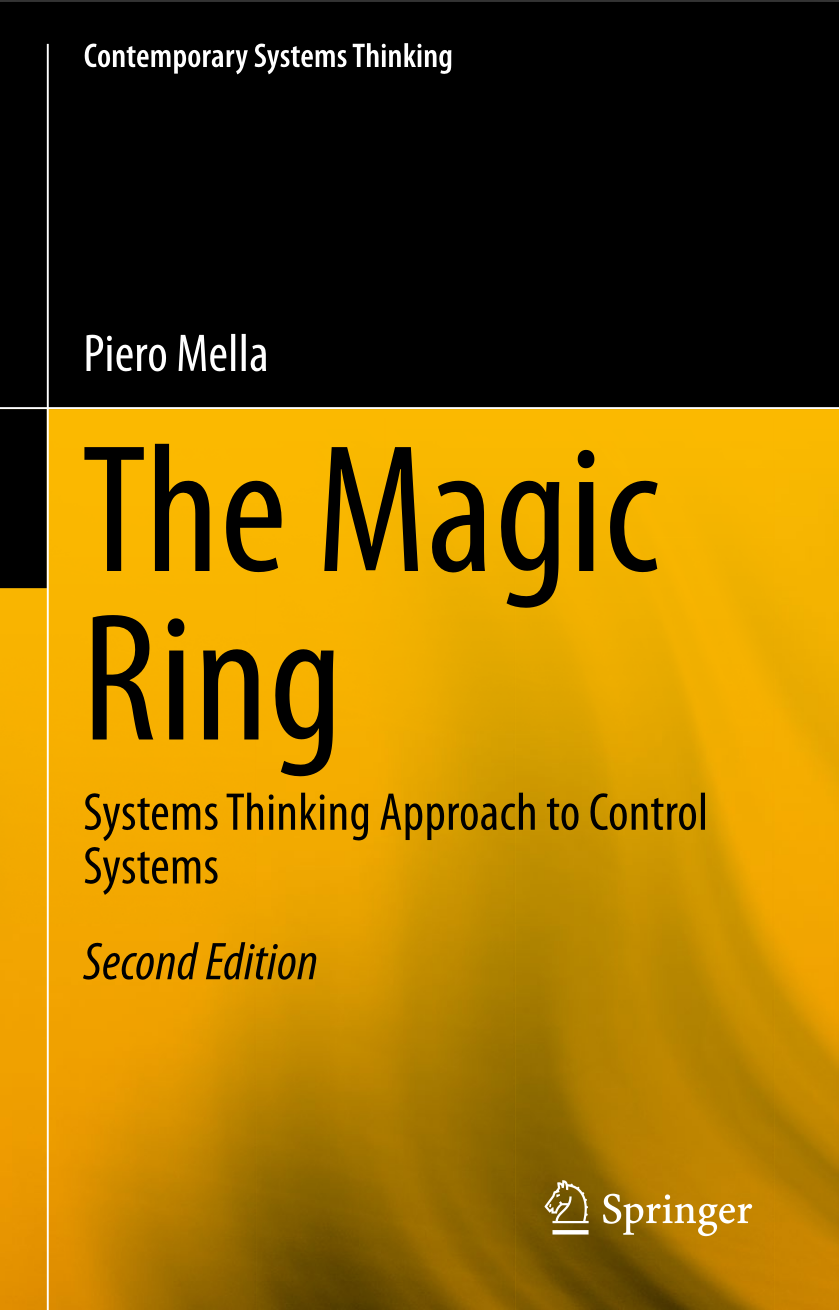
The Magic Ring – Second Edition
Systems Thinking Approach to Control Systems
Springer
This book presents a gradual path toward “educating” readers in understanding how Control Systems truly operate and in recognizing, simulating, and improving them in all fields of activity. Starting from the hypothesis that knowledge of Control Systems is not only a technical fact but also represents a discipline – that is, “A discipline is a developmental path for acquiring certain skills or competencies. (…) To practice a discipline is to be a lifelong learner. You ‘never arrive’; you spend your life mastering disciplines.” (Senge, 2006, p. 10) – Piero Mella has set the objective of making control Systems a topic that is, in a certain sense, simple and attractive by turning to the effective symbolism typical of Systems Thinking models and avoiding too technical and formal a treatment of the subject. Thus readers should know that this is not an engineering, physics, biology or economics text, nor a mathematics one either. Technical or mathematical tools are not necessary to construct Control Systems; instead the book adopts a highly simple and universal logic behind the notion itself of control process and the simple and universal action of the Control Systems that produce this process.
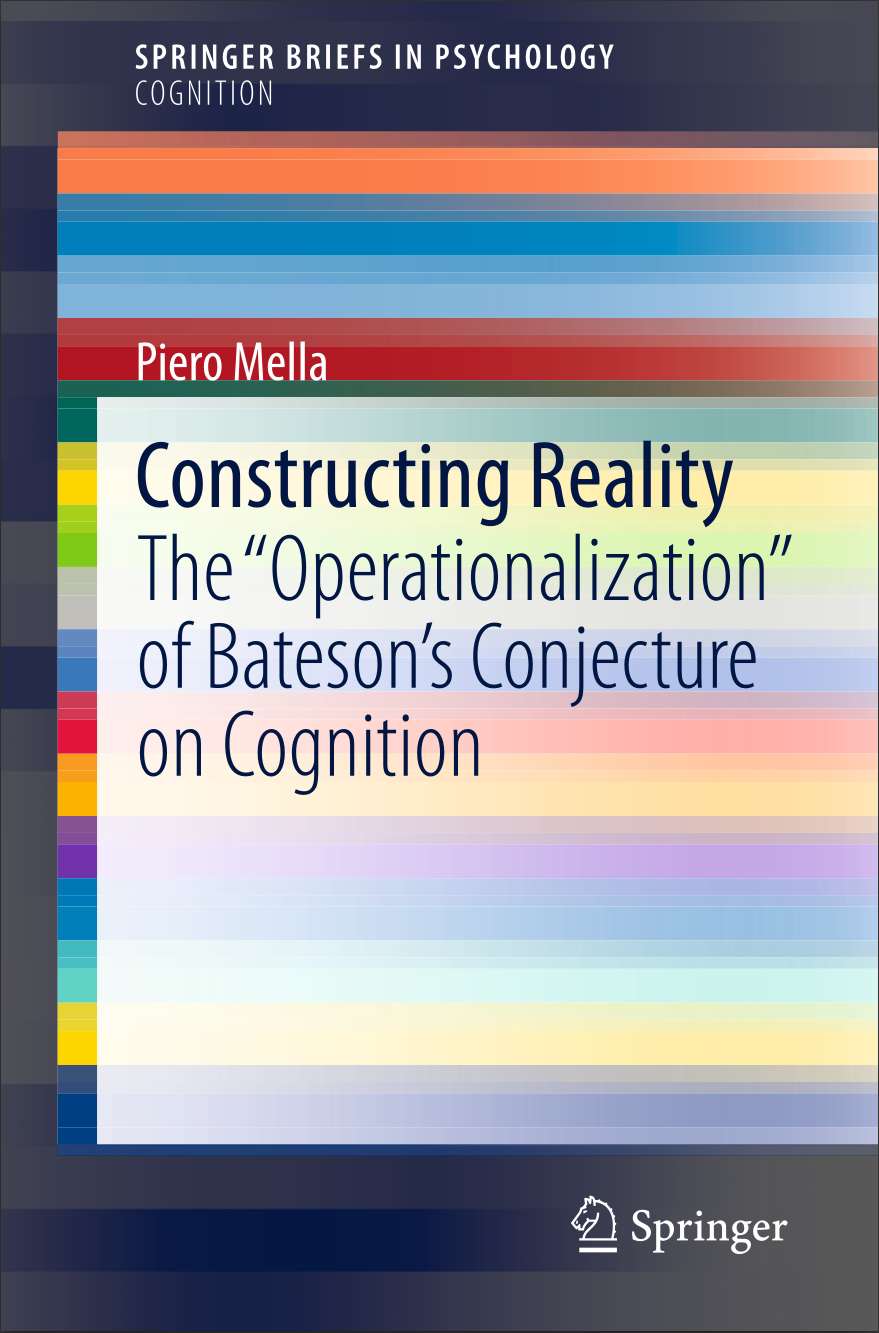
Constructing Reality
The “Operationalization” of Bateson’s Conjecture on Cognition
Springer
This brief presents an overview of Gregory Bateson’s Constructivist method of
Cognition. Bateson proposes a theory of cognition that is based on the abstract
notion of difference that the mind distinguishes and perceives and represents information
that constitutes and separates how different states are ordered, grouped, and
classified. Bateson, however, does not clearly indicate how a cognitive system can
develop a knowledge of reality from the perception of these differences. This book
seeks to offer a scientific approach to Constructivism. Using Bateson’s hypothesis,
chapters discuss how our mind distinguishes and elaborates differences, allowing us
to form perceptions of objects, and how these objects can be described and compared.
Chapters also discuss how from differences it is possible to construct concepts
or ideas of how these can be defined and how to derive from these differences
the meanings of the signs used for the structuring of languages. The brief offers a
coherent structure of propositions that form an interpretive theory of the modus
operandi of the human mind, which will be useful not only in shedding light on our
cognitive processes but also in laying the formal groundwork for artificial
intelligence.
Constructing Reality is a must-have resource for researchers and students of the
cognitive sciences, as well as education sciences, and researchers and scholars of
artificial intelligence, learning theory, and intelligent automata programming.
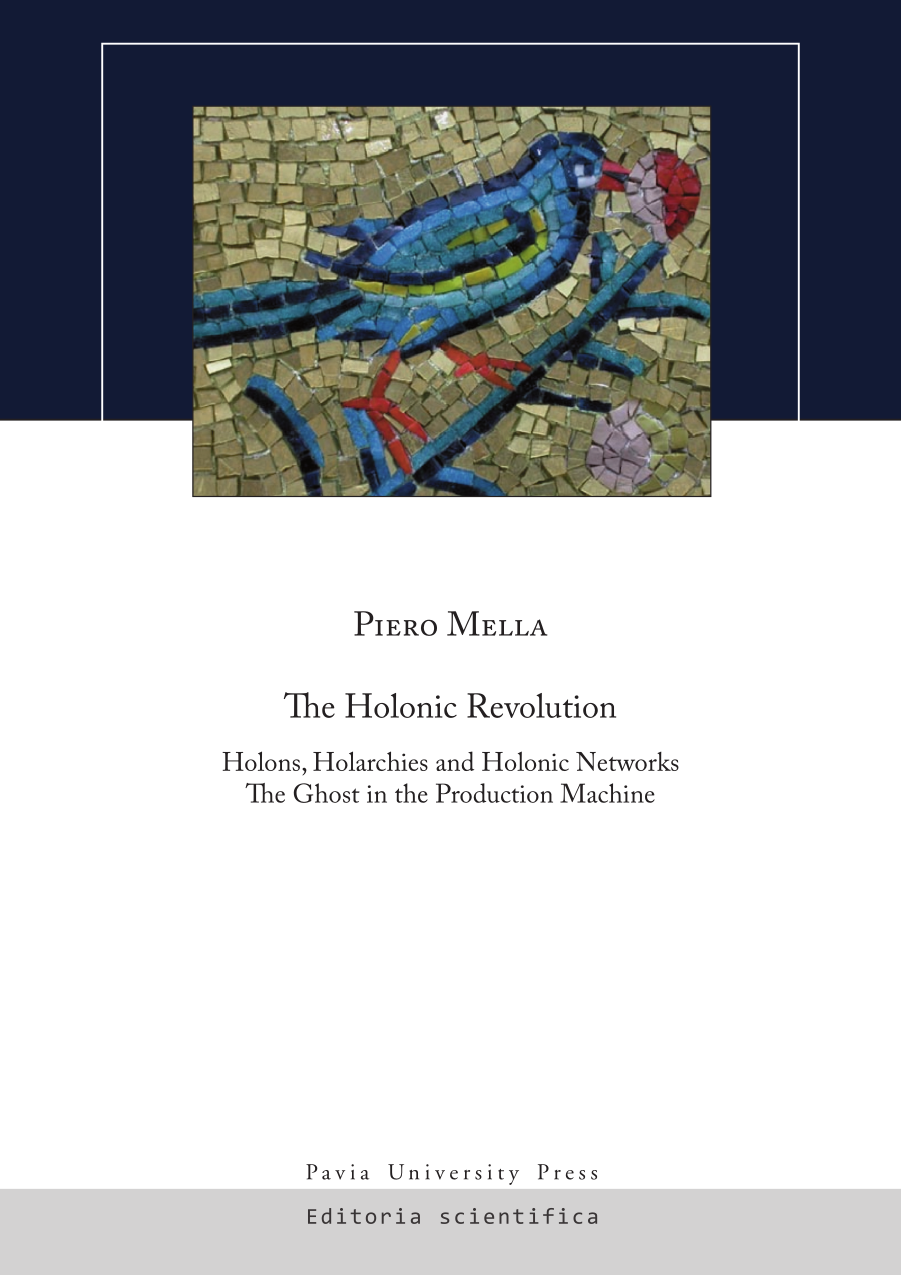
The Holonic Revolution
Holons, Holarchies and Holonic Networks. The Ghost in the Production Machine
Pavia University Press
(Summary coming soon)